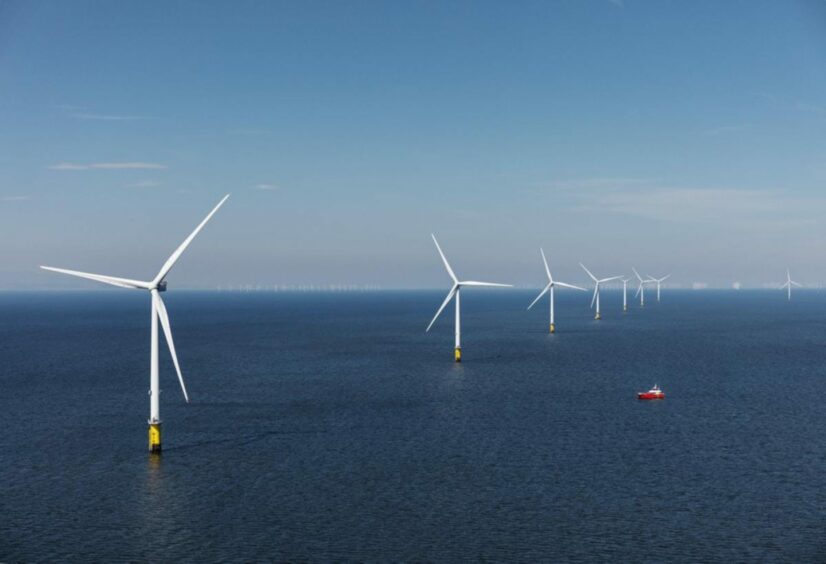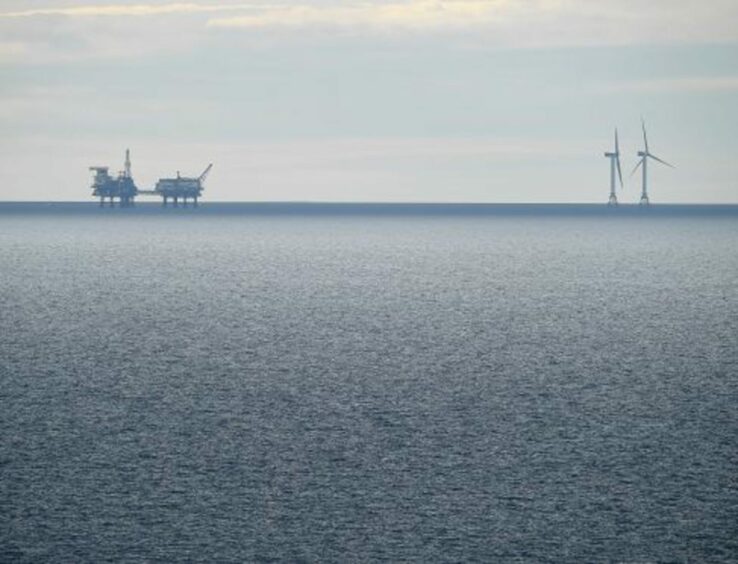
A trio of leading energy firms are to explore powering integrated UK North Sea hubs using a mammoth offshore wind farm.
Oil and gas firm Neptune Energy, Danish renewables giant Orsted, and Aberdeen’s Goal7 have struck a memorandum of understanding (MoU) to work on the project.
Integrated energy hubs have the potential to combine multiple systems, including existing oil and gas production assets, carbon storage and hydrogen production facilities.
They could extend the life of producing North Sea fields, as well as supporting the economic case for electrification with renewable energy, the key to axing offshore emissions.
Measures to reduce the environmental impact of producing oil and gas are included as part of the latest exploration licensing round, though some have questioned their strictness.
Organised by industry regulator, the North Sea Transition Authority, the process is expected to yield around 100 permits, due for award in early 2023.

Under the terms of the MoU, the companies will examine the potential for using renewable electricity from Orsted’s huge Hornsea offshore wind farm to power future Neptune-operated hubs in the UK North Sea.
Goal7 will provide project management support and technical input.
Neptune’s director of new energy, Pierre Girard, said: “The development of integrated energy hubs is an important part of Neptune’s strategy to store more carbon than is emitted from our operations and the use of our sold products by 2030.
“Neptune has submitted three applications under the recent Carbon Dioxide Appraisal and Storage Licensing Round, and securing the licences would enable us to develop future proposals for integrated energy hubs in the UK North Sea.
“In parallel, the agreement with Ørsted and Goal7 will support research into the potential use of windgenerated renewable electricity to power these hubs, which could comprise new and repurposed offshore assets and bring together hydrogen production and carbon injection facilities.”
Duncan Clark, Orsted’s managing director, offshore and country chairman for UK and Ireland, said: “The UK is a world leader in deploying offshore renewable energy and it is crucial that we use this clean technology as effectively as possible, finding new and alternative routes to market to ensure we are able to maximise the use of renewable power at the time it is produced.
“We must continue taking action to limit the damaging effects of climate change. Supporting the decarbonisation of other industrial sectors and providing renewable energy to enable more sustainable carbon storage is an important consideration as the UK transitions towards a low-carbon economy.
“As we build out the largest offshore wind zone in the world with our Hornsea projects and demand for electricity continues to increase, optimising production of these huge offshore assets will bring even greater value to consumers and support the UK’s efforts to meet its 2050 net zero commitments.”
Recommended for you


 © Supplied by Neptune Energy
© Supplied by Neptune Energy © Supplied by ?rsted
© Supplied by ?rsted